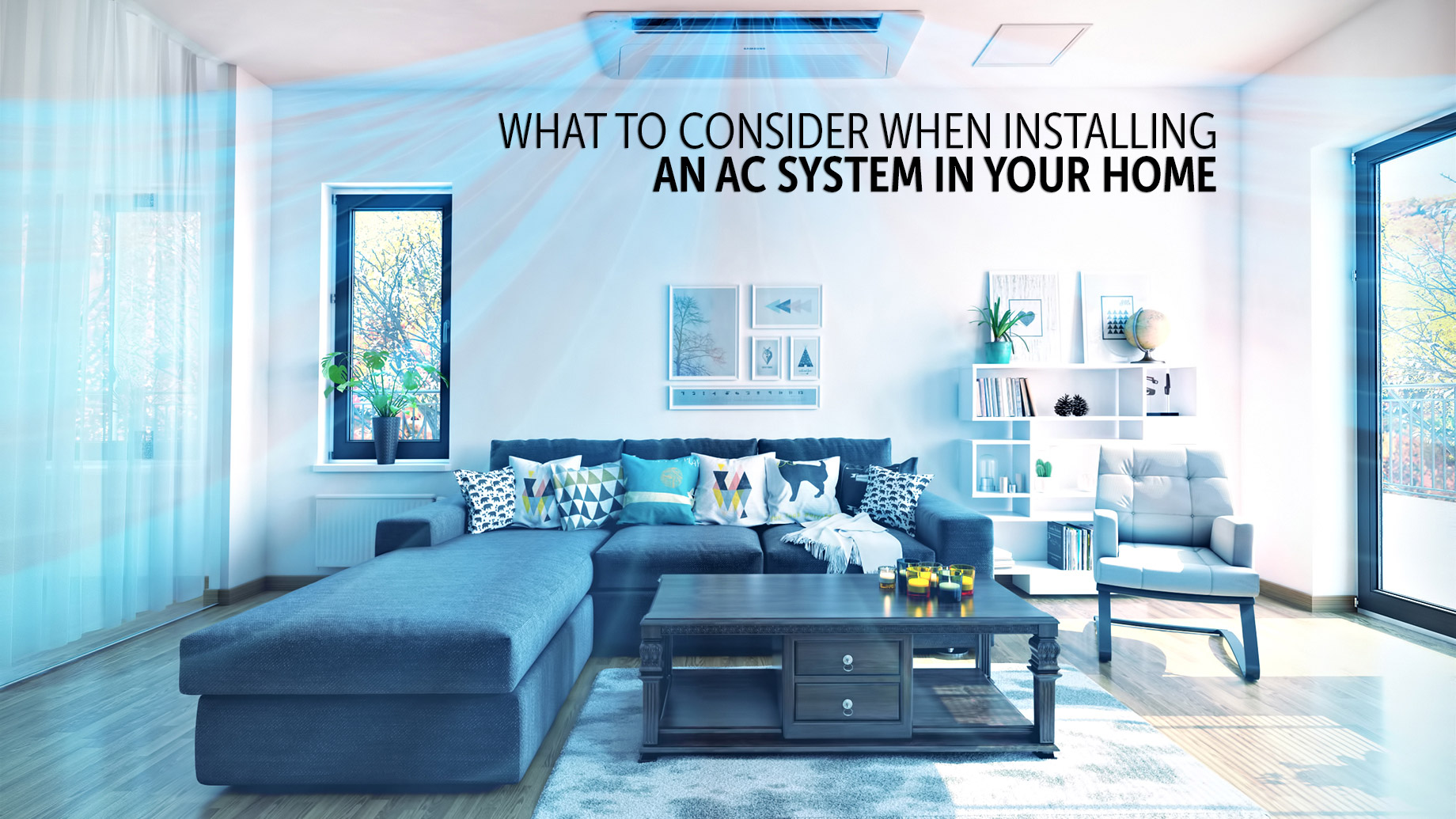
If you’re replacing an outdated AC system or you have a newly constructed home, installing a new air conditioning unit has many benefits. However, poor air conditioning system installation may cause long-term problems, like not getting the perfect temperature or spiking energy bills. That’s why you don’t want to repeat the same mistake that some homeowners make with the resulting problems. You should always research any system you are planning on purchasing before making a final decision and get professional advice before moving forward with the installation.
Here are some important considerations when installing a new AC system in your home.
Installation Price
Like any other homeowner, your budget is an essential factor to consider before installing a new air conditioning system. While most people look at the price of the AC system first, you should not forget to include the cost of installation or the labor cost to pay a professional AC installer.
In some cases, an AC installer may have to make some modifications to the home, and that would mean additional costs. However, choosing the cheapest system isn’t always a good idea, nor will it save you more money in the long run.
Here are some tips when choosing a new AC system that suits your budget:
- It’s a good idea to contact a local heating and air company to ensure that you’ll get the full price tag of a new air conditioning system, including the cost of installation services.
- Always ask for the estimate, including both the cost of the system and installation before you commit to anything.
- Don’t forget to inquire about the warranty and maintenance services.
Proper installation not only enhances the system’s performance but also extends its lifespan. Luckily, you can easily find an experienced AC installer in Gilbert, Arizona who offers exceptional services at a reasonable price. So if you live in the area, consider reaching out to local experts who can provide a detailed quote and ensure a smooth installation process.
Inspection of Your HVAC Ductwork
Get your home interior ready for summer through a new AC installation. Cost-wise, you can avoid unwanted surprises by having your ductwork inspected beforehand. Having the right ductwork is needed to transport cold air throughout the AC system.
That’s why you should be able to do this task without issues. You might encounter additional repair costs, such as resealing of joints and seams, but it’s all worth it.
Available Space For Your New AC System
The type of AC system you need will depend on the available space in your home, relating to the capacity and overall effectiveness. An experienced HVAC professional can help you determine the space requirements for your new AC.
Type of New AC Unit For Your House
When choosing a new AC, every home has a unique design that has different needs. While some designs can accommodate inexpensive units, others prefer expensive ones. A professional HVAC contractor can help you get an evaluation and assessment.
Here are the different types of AC units:
- Window Air Conditioner: It’s also called room AC, which is mounted on windows or walls, comprised a casing, hosting all the parts of the air conditioner. The two parts include the front side (cools the room) and the outdoor section where heat is released to the outside environment. Most window AC units are digitally controlled with adjustable louver, controlling the airflow direction for increased comfort.
- Split Air Conditioning System: It’s most-sought because of its elegance and silent operations. It comprises of the inside (includes the air filter and the cooling coil blower) and outside (contains the condenser coil, capillary tubing, and the compressor). This type of AC unit doesn’t require major installation because tubing and wires connect both sides of the AC system.
- Ductless Mini-split System: It has similar components like other air conditioners with outside and inside units. The components of ductless units are connected through small drilling on the wall, making them less vulnerable to security problems and air leakage. Also, this AC type is flexible and small, perfect to be used for cooling or zoning individual rooms. However, this AC type has poor energy efficiency as compared to other AC systems.
- Central Air Conditioner: It’s a system of controlling air through a system of air flow supply and return in an enclosed space. The cooled air flows outside of the AC system via the supply ducts, registering into the living space. As the air becomes warmer, the air flows back to the AC system via the return ducts and registers. A central AC system maintains the consistency of temperature throughout your house. However, this system can consume high energy if there are many rooms involved.
Additional AC Features
If you have some money left in your air conditioning budget, you might want to consider getting some add-ons to make your life easier and more comfortable.
Here are some great AC add-ons you might be interested:
- Air Purification System: You can reduce allergy and indoor pollutants with a quality air purification system built into your new AC system.
- Additional Remote Control Options: This feature allows you to start your air conditioner from outside the home using your smartphone or other internet-capable devices.
You can save more money in the long run by choosing the right AC system for your home by properly considering the correct type of AC unit that is most suitable for you application and referring to an HVAC professional to determine the estimated total cost of each new AC system installation option.